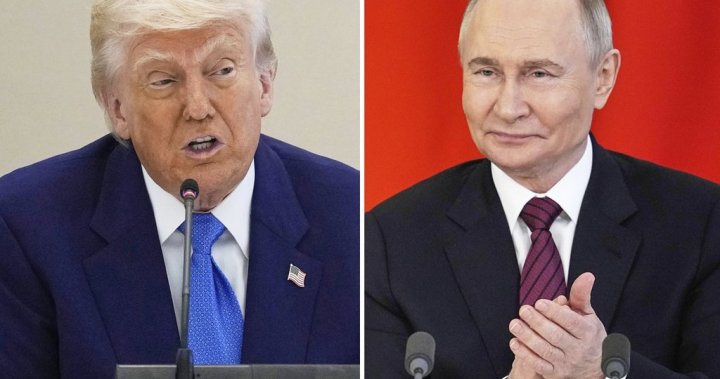U.S. President Donald Trump meets with NATO Secretary General Mark Rutte on the day of announcing a deal to get weapons to NATO, in the Oval Office at the White House on July 14, 2025.
Nathan Howard | Reuters
Here's a tariff we can get behind. At a White House meeting on Monday with NATO's secretary general, Mark Rutte, U.S. President Donald Trump said he would introduce "tariffs at about 100%" on Russia's trade partners if the Kremlin doesn't reach a deal to end its invasion of Ukraine in 50 days.
Notably, the punitive measures will be implemented as "secondary tariffs," Trump said. Unlike Trump's normal tariffs, under which a specific country is slapped with a levy, secondary tariffs impose the duty on countries and entities that buy Russia's exports.
While those moves were meant to weaken Russia's economy, they do run the risk of drawing other countries' ire. According to data from the International Trade Centre, in 2024, Russia's biggest export was oil, and its biggest buyers were China, India and Turkey, in that order. That means those nations, among others, would effectively face a tariff of 100% from the U.S. — the highest of all updated numbers announced so far — if they don't shift their buying patterns.
That said, it's refreshing to think of tariffs not as a weapon in a trade war (even if there might be collateral damage), but being used for peace.
What you need to know today
And finally...
A model of an eco-district, to be built out of engineered wood, currently known as Stockholm Wood City, by developer Atrium Ljungberg AB, in Sickla on the outskirts of Stockholm, Sweden, on Wednesday, July 12, 2023.
Erika Gerdemark | Bloomberg | Getty Images
Inside Europe’s billion-dollar wooden city
A part of Stockholm, the capital of Sweden, is set to become the "world's largest wooden construction project," according to its developer Atrium Ljungberg, which will invest 12 billion Swedish krona (about $1.25 billion) into the project.
Sickla — an industrial area to the south of Stockholm's center once known for manufacturing diesel engines — is being redeveloped using cross-laminated timber, with the material being used in its buildings' core, floors and walls.
— Lucy Handley



Leave a Comment